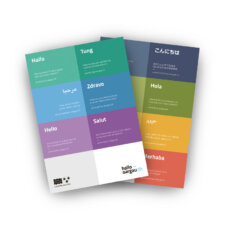What is stalking?
In a relationship, stalking can occur during or after separation. A stalker may be someone from the victim's immediate environment, such as a friend, acquaintance, neighbour or colleague, but they may also be strangers.
Stalking refers to the excessive watching, contacting, following and harassing of a person. This is done against the will of the victim. Stalking may also take place online. Stalkers may use Instagram, TikTok, Snapchat, email or GPS systems.



